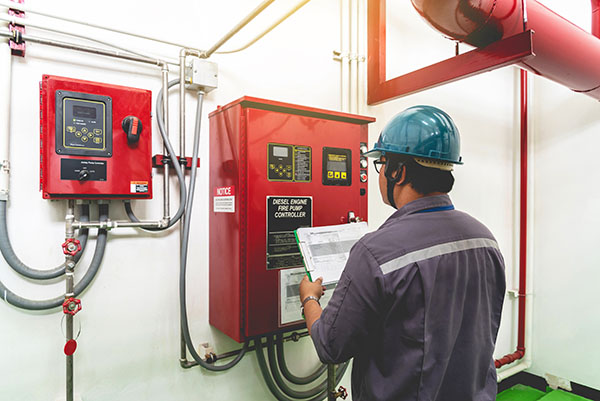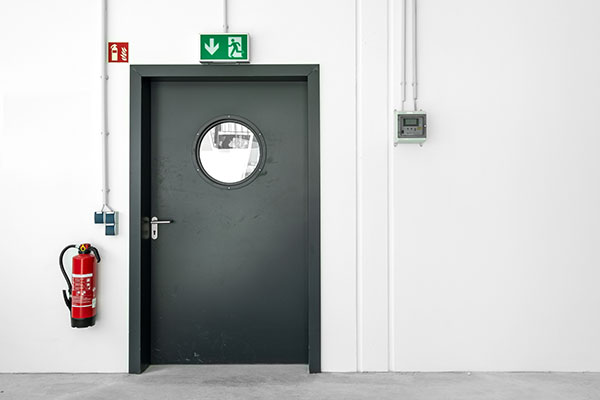Operating a business comes with its fair share of challenges and opportunities. As we have been so tragically reminded in the past few years, bushfire risk is a very real threat to our homes and businesses. While most people prepare on making their household ready, it is likewise important to get your business prepared for such a situation.
Whether or not your business location has direct threats of fire, don’t wait until the fire happens to take action. Start preparing a bushfire action plan now.
Here are some ideas on how you can better prepare your businesses to deal with a bushfire season.
1. Make a plan

Have an assessment of the bushfire risk to your workers, business’ buildings and other premises. After you have made an assessment, study your emergency procedures, make an evacuation checklist, and have a written bushfire plan.
A bushfire plan is important so employees will know exactly what they would do if a fire were to threaten your business premises or the surrounding areas. All employees must be aware of the business’ bushfire plan, especially its evacuation checklist. In this way, they can execute necessary actions without delay and advise clients and other guests on appropriate directions during this incident.
In making a plan, you should encourage your employees to participate. This is important so you can identify their needs and priorities in the fire season.
Here are some things that you should consider in your bush fire plan:
- People in-charge to implement the bushfire plan
- People in-charge of emergency preparedness and evacuations
- People who can give first-aid
- People in-charge of the emergency kit and other perishables
- People who shall communicate to clients and visitors of what is happening
- The time to evacuate
- The location of the nearest evacuation points / centers
- The location of the assembly site
- Procedure for leave entitlements for employees during the fire season
- Contact details of the employees
Once you have come up with your bushfire plan, it is advised that you review and update your emergency drill to ensure that your business is ready when the incident happens. It is also important that you execute last-minute emergency preparations to make sure that your business premises will survive in the bushfire.
Here are some recommended last-minute preparations:
- Turn off your business gas supply
- Close windows and doors
- Keep up to date with local updates
- Block gaps in between windows and doors with a wet blanket
- Move your external furniture away from the building
- Make sure that it is easy to exit during emergencies
Make sure to advise your employees that their lives are more important than protecting the business building. Also, keep in mind that the bushfire plan is meant to be implemented and not to be forgotten. Post the bushfire plan in a place where it can be easily seen by everyone.
2. Make your business premises bushfire ready
 If the bushfire is not imminent in your business location, you can take time and prepare it to minimise the risk of damage during a bushfire. In this way, your business building is easy to defend and less flammable. You can make your business premises bushfire ready through the following methods:
If the bushfire is not imminent in your business location, you can take time and prepare it to minimise the risk of damage during a bushfire. In this way, your business building is easy to defend and less flammable. You can make your business premises bushfire ready through the following methods:
- Trimming tree branches, cutting grass, and keeping away leaf litters
- Reducing flammable materials inside the building
- Installing suitable fire fighting equipment
- Train relevant staff on how to use fire fighting equipment
3. Protect your assets.
Bush fire can be destructive. Thus, putting some measures in place to better protect your business assets is important. Below are some ways you can protect your assets:
3. a) Emergency Kit
An emergency kit would help you and your employees survive when the bushfire is imminent and you are required to evacuate right away. Besides the bushfire plan, having an emergency kit will ease your anxiety in emergencies.
Some of the emergency essentials that need to be included in your kit are the following:
- Bushfire plan copy
- First aid kit
- Phone, charger, power bank
- Battery-powered radio
- Food and water supplies
- Cash
- Flashlights and torches
- Fire blankets
- Medications and toiletries
- Spare clothes
- Protective masks, goggles, and gloves
- USB drive to store important business documents
3. b) Property assessment
 Losing a business property to fire can put an end to your business. Have an expert that can assist you with some preventive measure that you can take to mitigate potential damage. Ensure that you have the correct valuation of your assets before a fire incident occurs. This is a must in filing for a claim following a fire incident.
Losing a business property to fire can put an end to your business. Have an expert that can assist you with some preventive measure that you can take to mitigate potential damage. Ensure that you have the correct valuation of your assets before a fire incident occurs. This is a must in filing for a claim following a fire incident.
3. c) Review your insurance policy
If you haven’t insured your business premises, then it might be the right time to get covered. The money claim that you may get from an insurance policy will help you recover after the fire incident. Talk with your insurance agent to understand the policy and the coverage of the contract.
Water is the most important survival kit staple so make sure that you have plenty of them. It is recommended that the emergency kit is placed alongside emergency hotline numbers, employee contact lists, and their relatives.
4. Back-up important documents
If worst-case scenarios happen and the office building is burnt, or if you are required to evacuate for a while, having your business-critical and important documents back up is a must for the continuity of the business.
Many businesses nowadays make use of the cloud for storing important documents online. You can also keep your files in a USB drive and keep the drive in the emergency kit.
Moreover, if you have a fireproof safe, you can store all relevant documents in it. Take note though that while you have stored your papers in a safe location, having a copy in the cloud means you always have a backup. This can be the best method in protecting your business continuity amidst the bush fire season.
5. Follow emergency alerts
While you are eager to protect your premises from fire, it is always best to prioritise yourself and your employees during this situation. Leave it to the firefighters as it is their job to defend properties during this worst time.
As an employer, make sure you have clear policies on what your employees can expect – whether they can take a leave or not. It’s always the best idea to have open communication with employees. This way, there would be no more confusion during this life-threatening event.
The Bottom Line
Face fire risks with confidence by planning, preparing and involving all staff in regular training.
For more personalised advice, seek advice as required.




